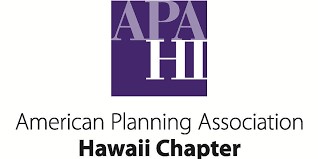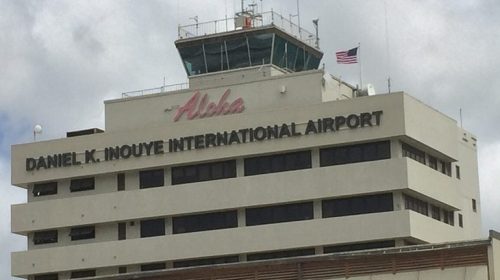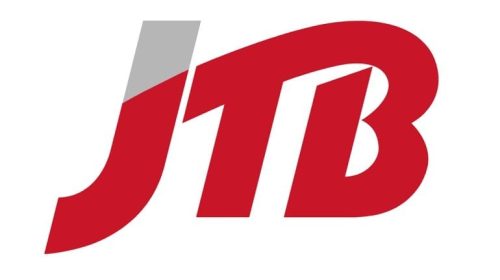Honolulu Office of Climate Change Wins Award
The City and County of Honolulu (City) Office of Climate Change, Sustainability and Resiliency (Resilience Office) was recognized with the 2020 award for the Public Agency category from the Hawai‘i Chapter of the American Planning Association (APA Hawai‘i). The award honors the work of a public sector agency that has continually produced a program of exceptional work judged across four categories: quality; outreach and engagement; innovation; and, implementation. The awards presentation was held during the Hawai‘i Congress of Planning Officials (HCPO) Annual Conference, held virtually during the week of October 19.
The Resilience Office had previously been recognized by APA Hawai‘i with the 2018 “Public Education and Outreach” award for their community engagement related to the O‘ahu Resilience Strategy.
“Public service has never been more important than right now, given the challenges we face together as a community,” said Mayor Kirk Caldwell. “I’m so proud that the extremely dedicated staff and leaders of our Resilience Office at the City and County of Honolulu has been independently recognized statewide for their integrity, outreach and work-ethic as they have engaged and served all of the residents on our island.”
The Resilience Office was established via a City Charter amendment in 2016 when O‘ahu voters overwhelmingly approved a dedicated Office to track climate change science; develop climate and sustainability policies; help communities prepare for climate change; and, report on Oahu’s progress in meeting sustainability and environmental goals. The importance of this work has surged as king tides, hurricanes, and rain bombs have posed threats in recent years, and the need to cut carbon emissions quickly has emerged as an urgent need to protect the public.
“The only way we can guard what we love about our island in the face of the climate crisis is to be flexible, adapt, and change,” said the City’s chief resilience officer, Josh Stanbro, who also serves as the executive director of the Resilience Office. “That’s why we’ve worked so hard to have two way conversations with the community—change is coming whether we like it or not and it’s important that the public has a say in how we chart a common path forward.”
The APA Hawai‘i jury acknowledged that in the three short years since being established, the Resilience Office has effectively partnered with various state and City departments and agencies, and engaged the community in unique ways to produce important new guiding policies and strategies. The jury noted that the Resilience Office has elevated the public’s knowledge and awareness regarding climate change and its effects on the community, and emerged as a trusted agency for supporting data- and science-based decision-making.
The jury highlighted the following Resilience Office projects that demonstrated excellence in the four evaluation categories in announcing their award decision:
- O‘ahu Resilience Strategy. The Resilience Strategywas created with a strong focus on input from the community. Over an 18-month period, grassroots residents and community leaders helped shape and craft the 44 resilience actions that form the body of this strategy and lay out a path to a resilient future for O‘ahu. The Resilience Office performed 220 engagement activities, including visiting all 33 neighborhood boards, and getting direct survey inputs from more than 2,300 individuals representing a range of Honolulu’s geographical, ethnic, gender, and age diversity. Over 70 percent of the surveys and input were collected live and in-person with island residents.
- Energy Conservation Code (Ordinance 20-10). Before Bill 25 (2019) was introduced, the Resilience Office organized and led 26 meetings with 76 stakeholders, held four consultation meetings with dozens of key organizations during early bill hearing stages, and ultimately engaged 169 stakeholders in total to ensure all views were incorporated in the final legislation.
- Climate Action Plan (CAP). A required document for cities to remain “in” the Paris Climate Agreement, the Office held 12 large community engagement programs for attendees to contribute to the development of policy decisions and timelines. The Office engaged nearly 1,000 individuals, and the draft CAP will be released this Fall for additional public input.
- Neighborhood Board Engagement. The Resilience Office has visited with all neighborhood boards twice, first, during the development of the Resilience Strategy in 2018 and in a subsequent round of visits in 2019-2020 to report back to the community on the specific Resilience Actions and progress to date.
- Kūkākūkā Project. At the onset of the COVID-19 pandemic the Resilience Office cancelled 12 scheduled island wide climate change in-person open houses, and instead pivoted to launch a series of one-on-one and small group outreach sessions prioritizing frontline disadvantaged communities facing disproportionate impact from both climate change and COVID-19. The office collaborated with the University of Hawai‘i Center for Oral Histories to design questions and is now distilling the information and data provided by community voices to help inform the Climate Action Plan, the upcoming climate adaptation strategy (Climate Ready O‘ahu) and operationalize climate resilience and equity within the office’s work. The conversations served as a pro-active effort by the City to meet people where they are at, and lower barriers to civic participation during the COVID-19 pandemic.
- Greenhouse Gas (GHG) Inventory. The Resilience Office produced the City’s first (and now annual) GHG inventory (resilientoahu.org/energy), making the data transparent and publically available on-line.
- Community Heat Assessment. The Resilience Office received a competitive federal award to coordinate and engage community volunteers to collect the data for and produce a public web map of Oahu, highlighting the risk of increasing temperatures to local residents due to global heating (bit.ly/oahuheatmap).
- Community Forestry. The Resilience Office led an effort to track and celebrate community-wide and community-led tree plantings in pursuit of the City goal to plant 100,000 new trees on O‘ahu by 2025, viewable at the 100k Trees O‘ahu Map (bit.ly/100ktreesoahumap).
- Climate Impact Viewer. The Resilience Office made strides to educate the public and provide data related to sea level rise, flooding, heat, and other climate threats in an accessible format by building the Climate Ready O‘ahu Web Explorer (bit.ly/climatereadyoahumap).
- COVID-19 Response and Recovery. The Resilience Office was recognized for its role in the development and maintenance of the City’s official COVID-19 Response web resources (oneoahu.org) and the City’s 768-CITY call center. Resilience Office staff were deployed at the start of the City’s COVID-19 Response efforts to serve as key staff for the Emergency Operations Center, Response Information Team, and helped support the development of the long-term recovery framework, including the creation of the Office of Economic Revitalization (OER). The Resilience Office continues to support the City’s COVID-19 efforts by developing and maintaining the public City and County of Honolulu CARES dashboard which allows people to see how the City is allocating and spending CARES funds in real time; standing up a Food Security and Sustainability Program to immediately secure food for families in need while supporting local farms and ranches to protect island food security; supporting efforts to build local COVID-19 lab capacity at the University of Hawai‘i (UH) and test wastewater on O‘ahu to gain insight into COVID-19 trends on our island; and, pioneering and protecting green energy jobs in this economic downturn, through a job training program with UH and retrofitting air circulation systems for island businesses to reduce COVID-19 risk indoors while also saving energy costs for local businesses facing declining revenues.
Since the O‘ahu Resilience Strategy’s release by Mayor Caldwell in May 2019, and subsequent adoption by City Council in October 2019 as a guiding policy document for the City (Resolution 19-233), substantive progress has been made in no less than 21 of the 44 resilience actions embedded in the strategy.
Other City and County of Honolulu agency awardees at the HCPO annual conference this year include:
- Transportation Planning: O‘ahu Bike Plan Update, Department of Transportation Services
- Cultural/Historic Presentation: Ha‘ikū Stairs Study, Honolulu Board of Water Supply
- Donald Wolbrink Chapter Achievement Special Recognition: Kathy K. Sokugawa, Acting Director, Department of Planning and Permitting.
All APA Hawai‘i 2020 awards information can be viewed at hawaii.planning.org/community-outreach/2020-chapter-awards/.




